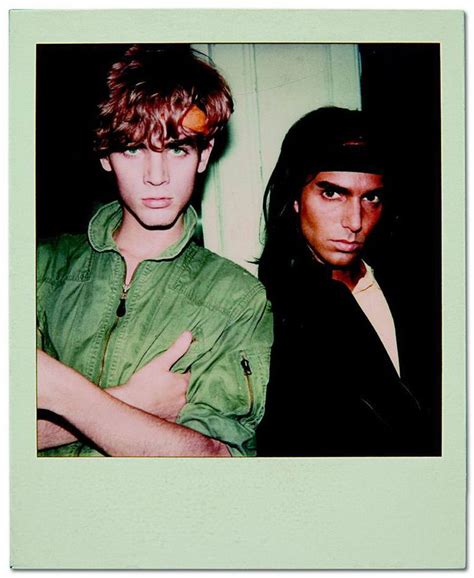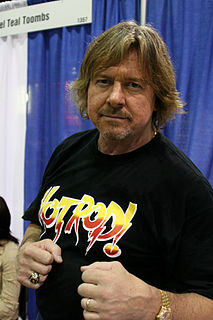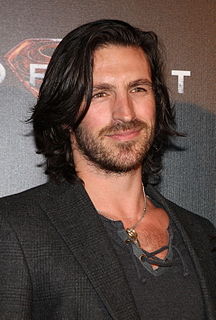A Quote by Maripol
At the beginning, Edo was a photographer, and I was more of a talent scout and doing styling and modelling. Then all of a sudden, in 1977, he gave me a Polaroid camera, and I discovered that instead of having to go to a lab and develop the film, I could just take a click and get a picture! It was genius, and I was very good at manipulating it.
Related Quotes
In the very beginning, women were editors because they were the people in the lab rolling the film before there was editing. Then when people like D. W. Griffith began editing, they needed the women from the lab to come and splice the film together. Cecil B. DeMille's editor was a woman. Then, when it became a more lucrative job, men moved into it.
When I first asked to take pictures of women at their homes, I was using my formal camera and I struggled to get the shots because I was still very much in the role of the photographer. Then the next time I had this little digital camera and their response to me would be completely different - I was a friend and I got new kinds of pictures. I was always treading a line between photographer and friend.
My business in the beginning was very lawless and the more trouble I go into, the more the promoters liked me back then. I was on the front page for doing something wrong, the arena was full. Then, all of a sudden, everything changed somehow and they put rules in. You put rules in a gunfight? I'm not so good at following those rules. I don't' know what will happen at WrestleMania.
Everybody can take a good picture. Everybody is interesting. Everyone has an interesting face. Some people are more difficult or more nervous or more tired. When you do a movie, you have action, you're talking, you're moving. You don't see the camera. Taking a picture with a photographer, you don't talk, it's more difficult than in a movie for your body to relax, to be yourself.
Theater gave me the confidence to believe I could play something else, 'cause it was so difficult. It was me out of my comfort zone. It gave me the confidence to believe that I could push myself and challenge myself and still succeed. Yeah. I'm very, very glad I did it. And I'm very keen, now, to take what I learned there into more television and film.
I know that I present very - they say that I present very, very calm and very, very smart, very articulate, elegant. Yeah. And I go, 'Brilliant teams of makeup and wardrobe happened to dress me and clothe me and put my face on and do my hair. And then these brilliant teams of writers give me words to speak. I just need to make sure that I have them all in this combination in my body, in my being, and then I get to do it on camera, in front of a brilliant team of camera workers who really know how to like me and make me sound good.' So I'm just really a dork in real life.







































